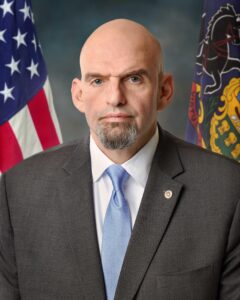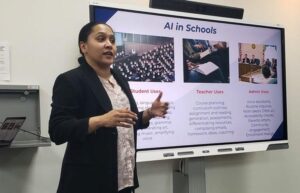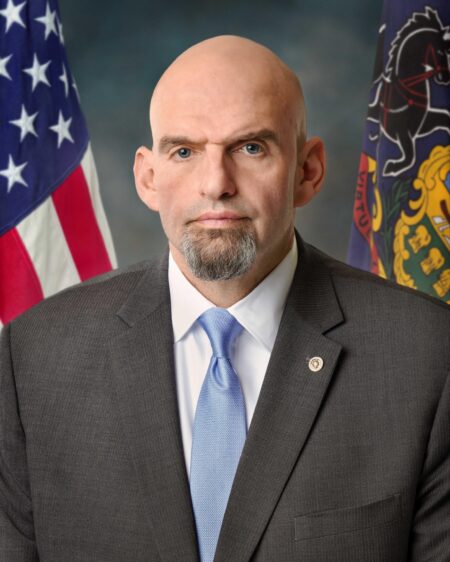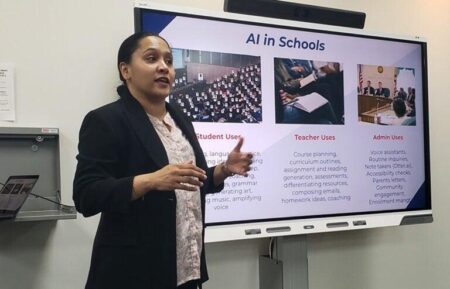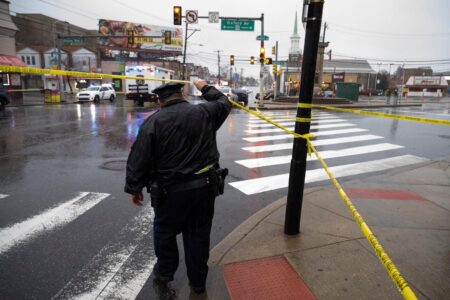Addressing Philadelphia’s Teacher Shortage by Embracing Educator Diversity
Philadelphia’s education system is currently facing a critical shortage of teachers, prompting city leaders to intensify efforts to recruit educators from diverse racial and ethnic backgrounds. This approach not only aims to fill the growing number of vacancies but also strives to cultivate a teaching workforce that authentically represents the city’s multicultural student body. Research consistently shows that students benefit academically and socially when taught by teachers who share or understand their cultural experiences, making this initiative a vital step toward equitable education.
Philadelphia’s multifaceted recruitment tactics include:
- Collaborations with regional universities and minority-serving institutions to develop specialized teacher training programs
- Financial incentives such as signing bonuses and student loan repayment assistance
- Implementation of culturally responsive professional development to empower educators of color
- Community engagement campaigns designed to inspire and attract aspiring teachers from underrepresented groups
| Year | Teacher Vacancy Rate | Percentage of Educators of Color |
|---|---|---|
| 2021 | 12% | 22% |
| 2022 | 15% | 27% |
| 2023 | 19% | 32% |
Strategic Initiatives to Support and Retain Educators of Color
In response to the staffing crisis, Philadelphia’s education authorities have introduced a comprehensive framework aimed at not only attracting but also sustaining a diverse teaching workforce. Central to this plan is the establishment of equitable hiring practices, expanded partnerships with historically Black colleges and universities (HBCUs) and other minority-serving institutions, and the creation of mentorship programs that connect novice teachers with seasoned educators of color. These efforts are designed to foster a nurturing environment that encourages professional growth and long-term commitment.
Core elements of the city’s retention and recruitment strategy include:
- Customized professional development addressing the unique challenges faced by educators of color
- Enhanced financial packages, including loan forgiveness and competitive signing bonuses
- Community-based outreach initiatives that leverage local leaders and organizations to build trust and awareness
- Bias reduction training for hiring committees to promote fair and inclusive recruitment
| Initiative | Description | Anticipated Outcome |
|---|---|---|
| University Collaborations | Partnerships with HBCUs and local colleges to expand recruitment | Broaden the pipeline of qualified candidates |
| Mentorship Programs | Pairing new teachers with experienced educators of color | Boost retention and professional development |
| Financial Incentives | Loan forgiveness and signing bonuses | Attract and secure top talent |
Leveraging Community Collaborations and Incentives to Grow Teacher Diversity
Philadelphia’s education leaders are actively building bridges with community organizations, advocacy groups, and higher education institutions to create sustainable pathways for educators of color. These partnerships focus on mentorship, scholarships, and targeted recruitment campaigns that tap into trusted community networks. By doing so, the district aims to attract candidates who reflect the city’s rich cultural and linguistic diversity, thereby enhancing the educational experience for all students.
Incentives play a crucial role in this comprehensive approach:
- Signing bonuses and student loan repayment programs
- Funding for professional development centered on cultural competence
- Flexible work schedules and robust support systems to address educators’ needs
These initiatives acknowledge the systemic challenges faced by teachers of color and offer practical solutions to improve recruitment and retention. The resulting collaborations not only strengthen hiring efforts but also contribute to a more inclusive and supportive school culture.
| Partnership Type | Incentive Provided | Focus Area |
|---|---|---|
| University Partnerships | Scholarships and internships | Early career development |
| Community Coalitions | Mentorship and networking | Retention and support |
| City Education Grants | Loan forgiveness | Financial accessibility |
Commitment to Sustained Diversity Efforts for Lasting Impact
Officials stress that resolving Philadelphia’s teacher shortage requires a long-term, systemic commitment to diversity and inclusion. Quick fixes are insufficient; instead, the focus must be on cultivating environments where educators of color feel valued and supported. This includes ongoing mentorship, cultural competency training, and equitable hiring practices that collectively foster retention and professional satisfaction.
Highlighted strategies for enduring success include:
- Collaborations with HBCUs and minority-serving institutions to maintain a steady recruitment pipeline
- Continuous professional development tailored to the experiences of educators of color
- Community engagement initiatives that build trust and promote inclusive school cultures
- Incentive programs such as loan forgiveness and housing assistance aimed at underrepresented educators
| Strategy | Objective | Projected Impact |
|---|---|---|
| Mentorship Programs | Support and retention | Increase teacher retention by 20% |
| Cultural Competency Training | Foster inclusive environments | Lower turnover among educators of color |
| Incentive Packages | Recruitment enhancement | Boost candidate applications by 30% annually |
| Community Partnerships | Build trust and support | Strengthen parent and community involvement |
Moving Forward Toward an Inclusive Educational Future
As Philadelphia continues to face an escalating teacher shortage, city leaders are doubling down on efforts to recruit and retain educators of color. By prioritizing diversity in hiring and fostering supportive environments, the district aims to not only address immediate staffing needs but also to build a more equitable and representative educational system. The effectiveness of these initiatives will be critical in shaping the future of Philadelphia’s schools and ensuring that all students benefit from a culturally responsive and inclusive learning experience.


